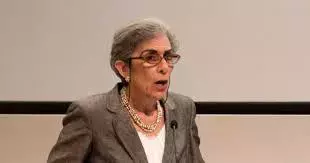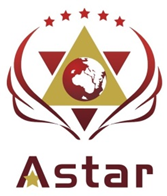曾说「亚裔少一点,美国比较好」 宾大教授:亚裔怨恨西方人成就
世界新闻网
4/16/2022

宾州大学(University of Pennsylvania)法学院教授艾咪‧瓦克斯(Amy Wax)今年初接受网络谈话节目访问时说:「亚裔如果少一点,美国将会比较好」,引发种族歧视争议。瓦克斯日前接受付费串流服务福斯国家网(Fox Nation)主播卡尔森(Tucker Carlson)节目访问时又说,亚裔对西方人的庞大成就「充满怨恨」。
瓦克斯在8日的「卡尔森今日秀」(Tucker Carlson Today)里,提到印度裔时说道:「他们爬着阶级之梯,受到最好的教育,我们把所有机会都给他们,结果他们却反过头来,带头抨击美国人存有种族歧视,还说美国是很糟糕的国家。从某种程度来看,他们国家才是个屎坑。」
宾州法学院讲师、宾州大学南亚研究组织「印度裔影响力」(Indian American Impact)运行主任马哈加(Neil Makhija)说,瓦克斯充满严重种族歧视的言论,令人怀疑是否有能力为出身于各种族裔背景的学生授课。
马哈加说:「最可悲的是,我们法学院有很多非常优秀且杰出的学生。她的发言让人质疑打成绩或教学时是否公平。」
Healthcare Certification and ESL Programs

国家广播公司(NBC)14日报导,瓦克斯并未回应采访要求。
马哈加说,瓦克斯原本是法学院第一年必修课的授课老师,但2018年被宾州大学调整职务,限定瓦克斯只能教选修课。
马哈加表示,其实瓦克斯根本就不应该获得发言平台。他说:「如果不是这些种族歧视言论,今天有谁会认识瓦克斯呢。」
他表示,瓦克斯在卡尔森节目找到舞台,但其他节目则未对她有任何重视,「她只是想为公然的种族歧视添加一些理智主义做为虚饰」。
在卡尔森节目中,瓦克斯嘲讽某些南亚妇女的种族歧视批判,还点名宾州医学院的南亚妇女。她说:「我想问问这些人,妳们为什么会离开祖国呢?妳们为什么会来美国呢?」
马哈加指出,最令人感到匪夷所思的是,瓦克斯批判的对象可能根本不是移民,而是在美国土生土长的。他说:「她对待自己美国公民的方式,是把我们看成比较低等的美国人,觉得我们不配在这里。」
美国教授炮轰印度移民:他们自己的国家就是个粪坑!
世界新闻网
4/14/2022
不满移民到美国的印度人指责该国存在种族歧视,美国宾夕法尼亚大学法学教授艾米·瓦克斯(Amy Wax)的激烈反应却似乎又坐实了这一指控。
据印度媒体14日报道,艾米·瓦克斯近日在美国福克斯新闻一档节目上炮轰美国移民,尤其是来自印度的移民。她攻击印度移民对美国的一切都持批判态度,但实际上他们自己的国家就是个“粪坑”。
艾米还宣称,由于对西方巨大成就的可望而不可及,黑人和其他非西方群体总是怀有怨恨、羞耻和嫉妒,进而导致他们“忘恩负义”,站在反种族主义倡议的道德高地上大肆抨击美国。
据《费城问询报》报道,艾米·瓦克斯是一名在宾夕法尼亚大学工作了20年的69岁终身教授,同时她也是一名神经学家。最近她在福克斯新闻一档节目上的“暴论”输出,引起哗然一片。
节目上,艾米认为非西方群体对西方世界创造出的巨大成就和贡献产生了巨大的怨恨和羞愧,“撇开美国黑人不谈,我认为他们确实感受到了怨恨、羞耻和嫉妒——我的意思是,这是一种情绪的邪恶酝酿。”
主持人当下没有做出回应,艾米自顾自地继续往下说,把矛头指向了亚洲人,尤其是宾夕法尼亚医学院的印度医生,她声称这群人“正站在反种族主义倡议的阵地上大肆抨击美国”。
艾米特地用印度的婆罗门女性做例子,“我们给了她们一个机会,但现在她们却回过头来带头指责我们是‘种族主义者’,说我们是一个糟糕的、急需改革的国家”、“问题就在这里。她们被教导说,她们比其他人都好,因为她们是婆罗门精英。但在某种程度上,她们的国家就是一个粪坑,请原谅我这么说。”
她进一步解释自己的发言,称这些移民憎恨美国拥有“出色、发达的科学和医疗机构”,所以“忘恩负义”地指责美国存在种族歧视。“她们已经意识到,我们在各方面都比她们强,比她们好……这个时候她们会有什么感受?”艾米继续说,“我认为第三世界对第一世界的妒忌和羞耻被完全低估了。”
这段节目片段在社交平台推特上的观看量已经超过了100万,艾米的发言引发众怒。
“艾米·瓦克斯就是个种族主义者。”印度校园组织(Hindu On Campus)在推特上写道,该组织致力于打击美国学校的反印度偏见。
瓦克斯的言论不仅受到了印度人的抨击,也受到了她的同行和同事的批评。
宾夕法尼亚大学法学院的另一名讲师尼尔·马希亚(Neil Makhija)在社交媒体推特上写道:“我们是美国。我们致力于废除那些为你的种族主义、低能思想提供传播平台的体制。”
他在接受《费城问询报》采访时更直言,“在美国最好的法学院里居然有这么一个(种族平等言论的)哑巴,真是有点可悲。”尼尔同时还是南亚全国性公民和政治组织“印裔美国人影响力”(Indian American Impact)的负责人,他说:“艾米·瓦克斯在一件事上是对的,那就是印裔美国人确实关心种族平等。”
同样来自宾夕法尼亚大学,医学院教授、儿科泌尿科医生阿西姆·舒克拉(Aseem Shukla)也加入了讨论。他写道:“我们当中的一些印度裔美国医生尽自己的一份力量,让美国拥有你描述的那种很棒的医疗保健系统。所以,是的,我们也有权利批评它。”
印媒更指出,艾米的此番言论并不令人震惊,因为她在发表种族主义言论这事上早就“前科累累”。她曾对黑人学生的学术能力提出质疑,并在去年12月发表“美国少一些亚洲人会变得更好”的争议言论。
宾夕法尼亚大学因此曾在2018年取消了艾米的必修课教学资格,但以“学术自由”为由拒绝解雇她。《印度快报》在报道中担忧称,如果艾米可以如此自如地在节目中展示她的种族主义立场,那么在她手下学习的亚裔或非裔学生要吃多少苦头。
据英国《独立报》报道,宾夕法尼亚大学拒绝评论艾米最近的言论,法学院重申,她的“观点不反映该校的价值观或做法”。
校方表示,今年1月该校法学院院长西奥多·鲁格(Theodore Ruger)曾就艾米的不当言论做出回应,指其发言是“反智的”和“种族主义的”,并且推动了一项大学教师参议院的程序,以解决艾米“种族主义言论强度和有害性质不断升级”的问题。根据《大学手册》要求,并维护整个过程的完整性,校方称在审查结束前不会发表任何公开声明。
报道称,目前尚不清楚这项教员审查程序将会持续多长时间,根据该校的教员手册,艾米可能会受到包括被发谴责信等轻微制裁,或被教员听证委员会暂停、终止雇佣等重大制裁。

H-1B签证舞弊犯 判监禁15个月 曾助600人非法进入硅谷
世界新闻网
11/25/2021

2022年H-1B工作签证申请季在即,移民局也加强了对于H-1B签证舞弊的打击力度。联邦司法部日前在一份新闻稿中说,46岁的桑尼维尔居民卡乌卢(Kishore Kumar Kavuru),因签证欺诈罪被判处15个月的监禁。该名男子曾帮助超过600人通过递交多份签证申请的方式进入硅谷工作。
司法部表示,根据认罪协议,卡乌卢是四家人事公司的首席执行官。这四家公司通过了H-1B资质认证,被允许临时雇用外籍员工,并将这些员工最终安置在硅谷的科技公司。
卡乌卢曾在2018年被指控犯有10项邮件欺诈罪和10项签证欺诈罪。2009年至2017年,他提交了100多份H-1B申请,「虚假描述H-1B职位,并谎称将员工安置在了其他公司中。」官员说。
疫情大流行使得全美就业市场长期低迷,许多外籍员工都选择返回家乡陪伴家人。当大家都以为H-1B工作签证的申请难度会相应降低时,现实却出乎所有人的意料。
根据美国移民局的数据,2021年共收到超过27万份H-1B的申请,比2020年度的申请人数还要高出7万人。同时,2021年的H-1B签证的中签率还创下了十几年以来的新低,更有新闻曝出有大量空壳、外包公司帮助申请者非法提交多份申请,以提高中签概率。年初,部分华人还发起了反对「H-1B舞弊」的活动,集体诉讼移民局对申请审查的不力。
官员表示,卡乌卢要求他的客户向他支付数千元的现金作为报酬,以帮助他们提交申请,并寻找一份「数月无薪水」的工作。根据一份审判备忘录显示,卡乌卢至少从中赚取了150万元。
除了15个月的监禁以外,卡乌卢还将被罚款53万元,并在出狱后的三年接受监管。他将于明年2月10日开始服刑。
Department of Justice
U.S. Attorney’s Office
Northern District of California
FOR IMMEDIATE RELEASE
Tuesday, November 23, 2021
Sunnyvale Man Sentenced To 15 Months For Visa Fraud
Defendant Falsified Over 100 H-1B Visa Applications And Obtained More Than $1.5 Million In Fraud Proceeds
SAN JOSE – Kishore Kumar Kavuru was sentenced late yesterday in federal court to 15 months in prison for making false statements in foreign worker visa applications, announced Acting United States Attorney Stephanie M. Hinds, U.S. Department of Labor Office of Inspector General Special Agent in Charge Quentin Heiden, Los Angeles Region, and Homeland Security Investigations Special Agent in Charge Tatum King. The sentence was handed down by United States District Judge Edward J. Davila.
Kavuru, 49, of Sunnyvale, California, pleaded guilty to one count of visa fraud on May 24, 2021. In his plea agreement, Kavuru stated he owned, operated, and was CEO of four different staffing companies. His companies specialized in obtaining H-1B visas for foreign skilled workers and placing these individuals in the United States at technology firms seeking qualified H-1B contractors. Known as H-1B Specialty Occupation Workers program, the H-1B visa program allows an employer to temporarily hire a skilled foreign worker in the United States on a nonimmigrant basis. The position must qualify as a “specialty occupation,” that is, one that requires the application of specialized knowledge and a bachelor’s degree or equivalent in the specialty. At the four staffing companies he owned and ran, Kavuru was responsible for creating H-1B visa applications for foreign workers and submitting them to the appropriate government agencies of the United States.
Kavuru admitted in his plea agreement that from 2009 through at least 2017 he engaged in a scheme to obtain H-1B visas from government agencies by submitting H-1B applications that contained false and fraudulent statements. Kavuru admitted to submitting more than one hundred applications that falsely described available H-1B positions and falsely stated that the H-1B workers were to be placed at the positions at specific companies. Kavuru admitted he knew at the time he submitted the applications that the companies did not have the named jobs and that he did not intend to place the workers at those companies. None of those foreign skilled workers were ever placed at those companies. Kavuru – or one of his employees at Kavuru’s direction – nevertheless signed the visa applications attesting under penalty of perjury to the truth of those false statements.
Kavuru further admitted that he required the H-1B foreign skilled workers to pay him thousands of dollars in cash for the cost of preparing and submitting their H-1B visa petitions, which is a violation of U.S. Department of Labor (US DOL) regulations. He also admitted requiring his H-1B visa recipients to go unpaid for months while he looked for legitimate H-1B positions for them, violating US DOL regulations by failing to pay H-1B workers while they are “benched” in this manner.
In a memo filed for sentencing, the government calculated that Kavuru orchestrated the submission of over 100 fraudulent H-1B visa applications that earned him more than $1.5 million in fraudulently-obtained proceeds.
In addition to his 15 month prison sentence imposed for visa fraud in violation of 18 U.S.C. § 1546(a), United District Judge Edward J. Davila entered a forfeiture money judgment in the amount of $533,350.03. The sentence also included a three year period of supervision following Kavuru’s release from prison.
Kavuru will surrender to begin serving his sentence on February 10, 2022.
Assistant United States Attorney Maia T. Perez prosecuted the case, with the assistance of Lakisha Holliman. The prosecution is the result of an investigation by the U.S. Department of Labor, Office of Inspector General and Homeland Security Investigations.
USCIS Conducts Third Random Selection from Previously Submitted FY 2022 H-1B Cap Registrations
Release Date 11/19/2021
We recently determined that we needed to select additional registrations to reach the fiscal year (FY) 2022 H-1B numerical allocations, including the advanced degree exemption. On Nov. 19, we selected from among previously submitted electronic registrations using a random selection process. The petition filing period based on registrations selected on Nov. 19 will begin on Nov. 22, 2021, and close on Feb. 23, 2022. Individuals with selected registrations will have their myUSCIS accounts updated to include a selection notice, which includes details about when and where to file.
In July 2021, we conducted a second random selection from among properly submitted electronic registrations for the FY 2022 H-1B numerical allocations. The petition filing period based on registrations selected in July ended on Nov. 3, 2021.
We conducted an initial selection in March 2021. The initial filing period for those with selected registrations for FY 2022 was from April 1, 2021, through June 30, 2021. Per regulation, we take into account historical data related to approvals, denials, revocations, and other relevant factors to calculate the number of registrations needed to meet the H-1B numerical allocations for a given fiscal year. Only those petitioners with selected registrations for FY 2022 are eligible to file H-1B cap-subject petitions.
An H-1B cap-subject petition must be properly filed at the correct service center and within the filing period indicated on the relevant registration selection notice. Online filing is not available for H-1B petitions. Petitioners filing H-1B petitions must do so by paper and must include a printed copy of the applicable registration selection notice with the FY 2022 H-1B cap-subject petition.
Registration selection only indicates that petitioners are eligible to file H-1B cap-subject petitions; it does not indicate that the petition will be approved. Petitioners filing H-1B cap-subject petitions, including those petitions eligible for the advanced degree exemption, must still submit evidence and establish eligibility for petition approval based on existing statutory and regulatory requirements.
For more information, visit the H-1B Cap Season page.
Last Reviewed/Updated: 11/19/2021
Employment authorization implemented for Hong Kong residents covered under Deferred Enforced Departure
By Berry Appleman & Leiden LLP
10/20/2021
U.S. Citizenship and Immigration Services (USCIS) provided information today on how Hong Kong residents covered by Deferred Enforced Departure (DED) apply for employment authorization.
Key Points:
- DED and employment authorization for noncitizens covered by DED for Hong Kong is effective from Aug. 5, 2021, through Feb. 5, 2023, except for noncitizens who:
- Have voluntarily returned to Hong Kong or the People’s Republic of China (PRC) after Aug. 5, 2021.
- Have not continuously lived in the U.S. since Aug. 5, 2021.
- Are inadmissible under the Immigration and Nationality Act.
- Have been convicted of any felony or two or more misdemeanors in the U.S.
- Are subject to extradition.
- Are considered a present danger to public safety or have potentially serious adverse foreign policy consequences for the U.S. if they remain in the country.
- USCIS said Wednesday that Hong Kong residents can apply for an Employment Authorization Document by submitting a completed Form I-765, Application for Employment Authorization.
- Individuals can apply for travel authorization by submitting, Form I-131, Application for Travel Document.
Additional Information: Eligibility requirements for Hong Kong residents who are covered by DED are based on the terms described in the President Joe Biden’s directive and any relevant requirements established by the Department of Homeland Security. The full USCIS announcement can be found here.
USCIS Implements Employment Authorization for Individuals Covered by Deferred Enforced Departure for Hong Kong Residents
Release Date: 10/20/2021
Eligible Hong Kong Residents May Apply for EADs and Travel Authorization
WASHINGTON — U.S. Citizenship and Immigration Services (USCIS) today issued a Federal Register notice with information on how to apply for employment authorization for eligible Hong Kong residents covered under the president’s Aug. 5 memorandum directing Deferred Enforced Departure (DED) for 18 months, through Feb. 5, 2023.
DED for Hong Kong residents applies only to certain eligible Hong Kong residents who were present in the United States as of Aug. 5, 2021; who have continuously resided here since that date; and who meet other eligibility criteria described in the president’s memorandum. For purposes of this DED policy, Hong Kong residents are individuals of any nationality, or without nationality, who have met the requirements and been issued a Hong Kong Special Administrative Region (HKSAR) passport, a British National Overseas passport, a British Overseas Citizen passport, a Hong Kong Permanent Identity Card, or an HKSAR Document of Identity for Visa Purposes.
There is no application for DED. Eligibility requirements for Hong Kong residents who are covered under DED are based on the terms described in the president’s directive and any relevant implementing requirements established by the Department of Homeland Security.
Eligible Hong Kong residents may apply for an Employment Authorization Document by submitting a completed Form I-765, Application for Employment Authorization. Eligible Hong Kong residents covered by the president’s DED memorandum may also receive travel authorization. Individuals must file Form I-131, Application for Travel Document, for advance parole if they wish to travel based on DED.
For more information on USCIS and its programs, please visit uscis.gov or follow us on Twitter, Instagram, YouTube, Facebook and LinkedIn.
Last Reviewed/Updated: 10/20/2021

USCIS Extends Flexibility for Responding to Agency Requests
Release Date: 09/24/2021
In response to the coronavirus (COVID-19) pandemic, U.S. Citizenship and Immigration Services is extending the flexibilities it announced on March 30, 2020, to assist applicants, petitioners and requestors who are responding to certain:
- Requests for Evidence;
- Continuations to Request Evidence (N-14);
- Notices of Intent to Deny;
- Notices of Intent to Revoke;
- Notices of Intent to Rescind;
- Notices of Intent to Terminate regional centers; and
- Motions to Reopen an N-400 Pursuant to 8 CFR 335.5, Receipt of Derogatory Information After Grant.
In addition, USCIS will consider a Form I-290B, Notice of Appeal or Motion, or Form N-336, Request for a Hearing on a Decision in Naturalization Proceedings (Under Section 336 of the INA), if:
- The form was filed up to 60 calendar days from the issuance of a decision we made; and
- We made that decision anytime from March 1, 2020, through Jan. 15, 2022
Notice/Request/Decision Issuance Date:
This flexibility applies to the above documents if the issuance date listed on the request, notice or decision is between March 1, 2020, and Jan. 15, 2022, inclusive.
Response Due Date:
USCIS will consider a response to the above requests and notices received within 60 calendar days after the response due date set in the request or notice before taking any action. Additionally, we will consider a Form N-336 or Form I-290B received up to 60 calendar days from the date of the decision before we take any action.
Please visit uscis.gov/coronavirus for USCIS updates.
Last Reviewed/Updated: 09/24/2021
USCIS Extends Evidence of Status for Conditional Permanent Residents to 24 Months with Pending Form I-751 or Form I-829
Release Date: 09/03/2021
Starting Sept. 4, 2021, USCIS is extending the time that receipt notices can be used to show evidence of status from 18 months to 24 months for petitioners who properly file Form I-751, Petition to Remove Conditions on Residence, or Form I-829, Petition by Investor to Remove Conditions on Permanent Resident Status. We are making the change from 18 to 24 months to accommodate current processing times for Form I-751 and Form I-829, which have increased over the past year.
Conditional permanent residents who properly file Form I-751 or Form I-829 will receive a receipt notice that can be presented with their Form I-551, Permanent Resident Card (also known as a Green Card), as evidence of continued status for up to 24 months past the expiration date on their Green Card, while their case remains pending with USCIS.
Additionally, we will issue new receipt notices to eligible conditional permanent residents who properly filed their Form I-751 or Form I-829 before Sept. 4 and whose cases are still pending. Those receipt notices will also serve as evidence of continued status for 24 months past the expiration date on their Green Card.
As a reminder, conditional permanent residents who plan to be outside of the United States for a year or more should apply for a reentry permit by filing Form I-131, Application for Travel Document, before leaving the country. For more information on International Travel as a Permanent Resident, see our Green Card page.
Last Reviewed/Updated: 09/03/2021






